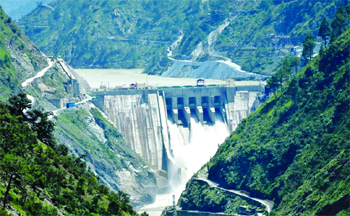New Delhi (TIP)- India is not afraid of Pakistan’s empty threats on the abeyance of the Indus Waters Treaty and the pact will not be restored, the government said on Thursday, June 26.
Reacting to the former Pakistan Foreign Minister Bilawal Bhutto’s threats of war if India refused to renegotiate IWT abeyance, Jal Shakti Minister CR Paatil said, “Water will not go anywhere. The treaty will not be renegotiated. What Bhutto says is up to him.” He added India would benefit hugely from plans underway to utilise excess waters from the western rivers — Indus, Jhelum and Chenab — which was previously allocated to Pakistan under the treaty. He acknowledged that the Indian government had received several requests from Pakistan (at least four) to re-consider the suspension of the treaty. “Writing letters is natural, but letters will not determine outcomes. Home Minister Amit Shah has already clarified that the treaty will never be restored,” said Paatil.
He said India was working to utilise the waters of the western tributaries of the Indus but it was not in the national interest to divulge specific details of the project right now.
The Tribune has learnt that the Centre was moving ahead with five projects on the western rivers, which were previously stalled due to the IWT.
These include the Tulbul Navigation Project, which was designed to navigate the Jhelum river during the lean winter months. J&K CM Omar Abdullah has called for the revival of this project.
The National Hydroelectric Power Corporation (NHPC) is working on a detailed project report for the Tulbul plan. Official sources said the DPR would take a year, after which the Centre will decide whether to go ahead with the revival of the project. The Kishanganga hydroelectric power project diverts water from the Kishanganga river to a power plant in the Jhelum river basin, is complete, said sources.
The government is speeding up the construction of the Ratle hydroelectric power project on Chenab. This project is designed as a run-of-river scheme with an installed capacity of 850 MW.
Source: TNS
Govt won’t restore Indus Waters Treaty, plans other projects

Leave a Reply